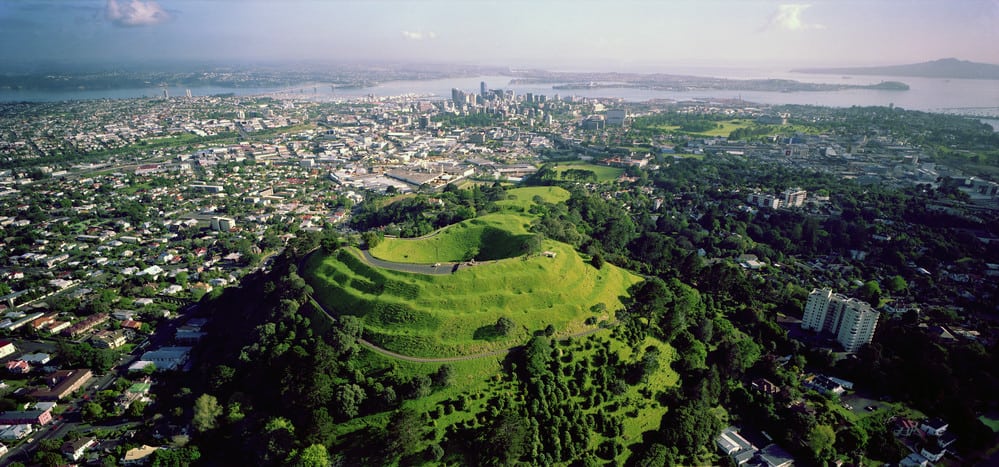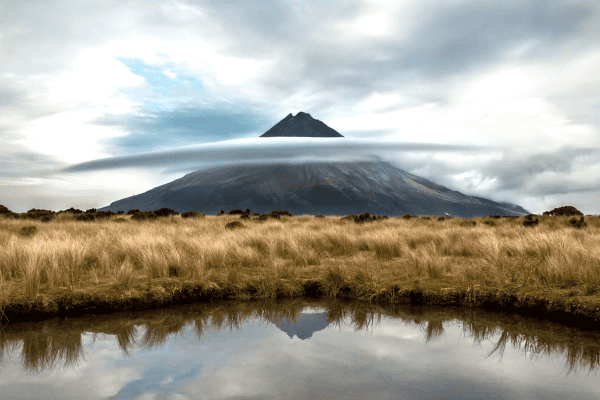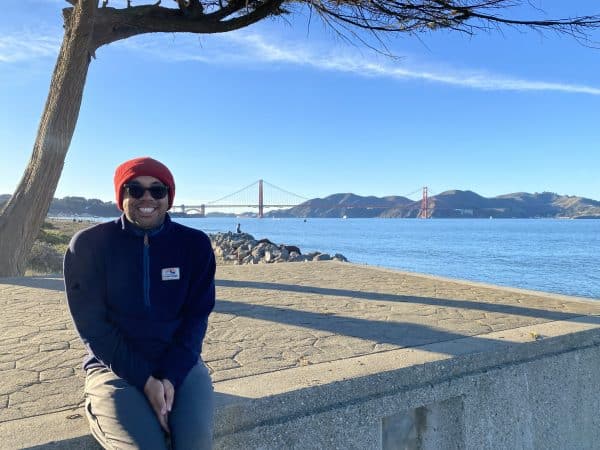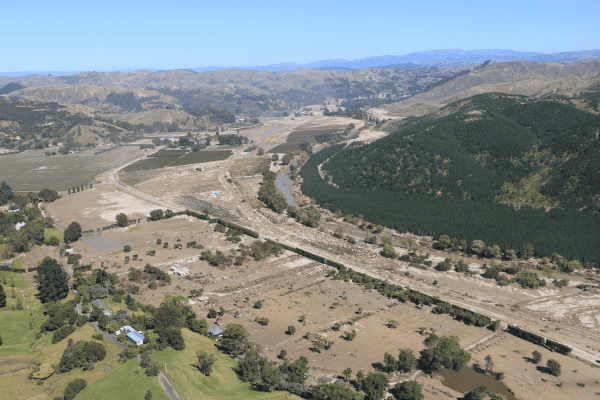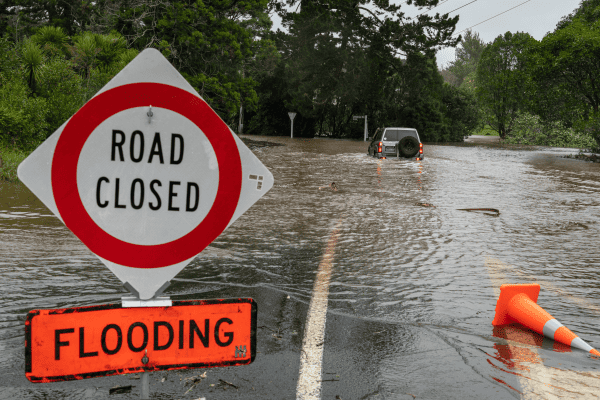By Robert Cardwell
A research team led by University of Auckland PhD candidate and Market Economics researcher Robert Cardwell recently published new research on the simulation of economic and urban development recovery pathways following the eruption of a new volcano in the Auckland region.
The research, published in the Journal of Volcanology and Geothermal Research, demonstrates the capability to simulate not only the direct physical impacts associated with infrastructure and land use destruction and disruption, but also population and business evacuation and relocation. The team also modelled the socio-economic and land use planning implications associated with recovery and also the longer-term growth-related pressures on city development.
Figure 1 shows the impact on value added (the counterpart to Gross National Product at the regional level) of the volcanic eruption scenario over a 20 year period following the eruption compared to a baseline scenario where the eruption did not occur.

Figure 2 depicts the difference in development of residential and industrial land use that has occurred by September 2040 in the volcanic eruption scenario compared to the baseline scenario under a ‘Fast Recovery’ scenario.
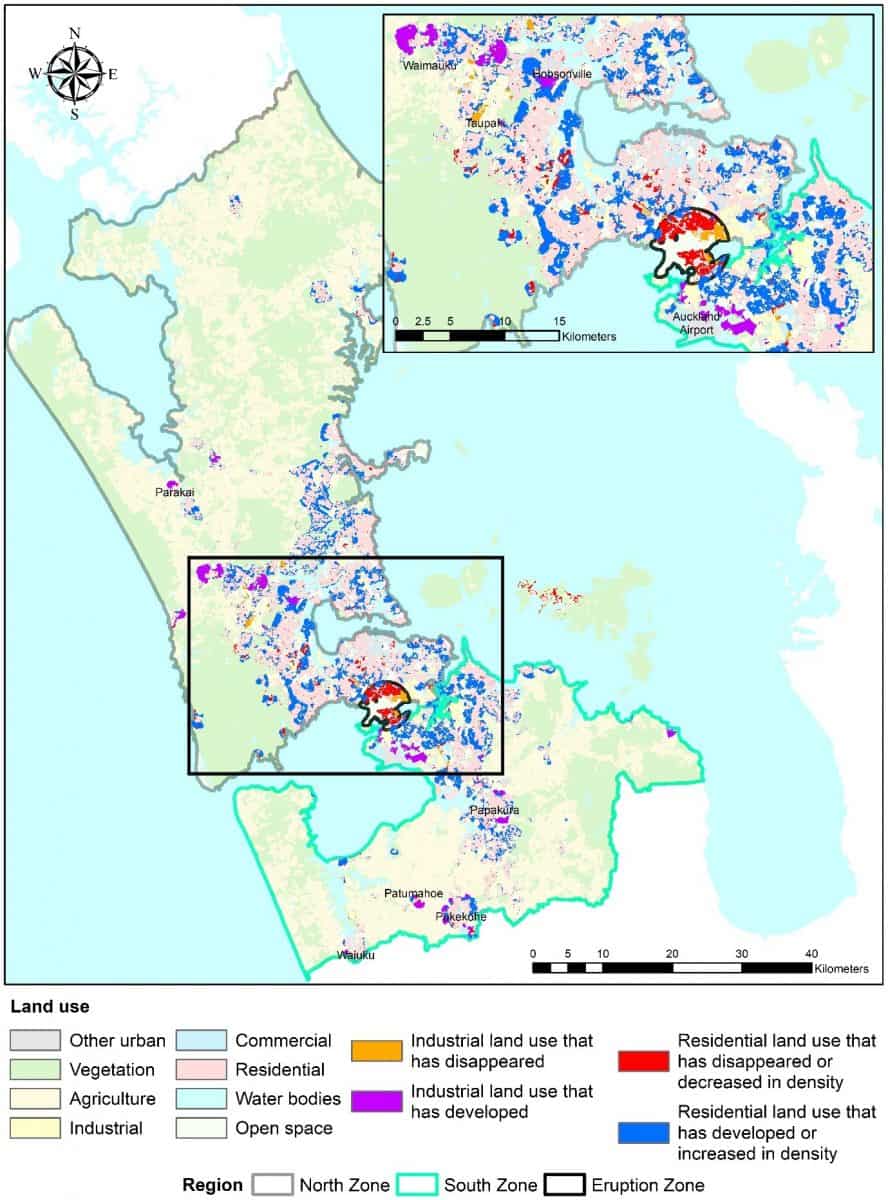
Figure 3 depicts the difference between two scenarios at September 2040 where in one scenario the land physically impacted has been remediated within a timeframe of 5 years, and another in which the remediation has taken 10 years.
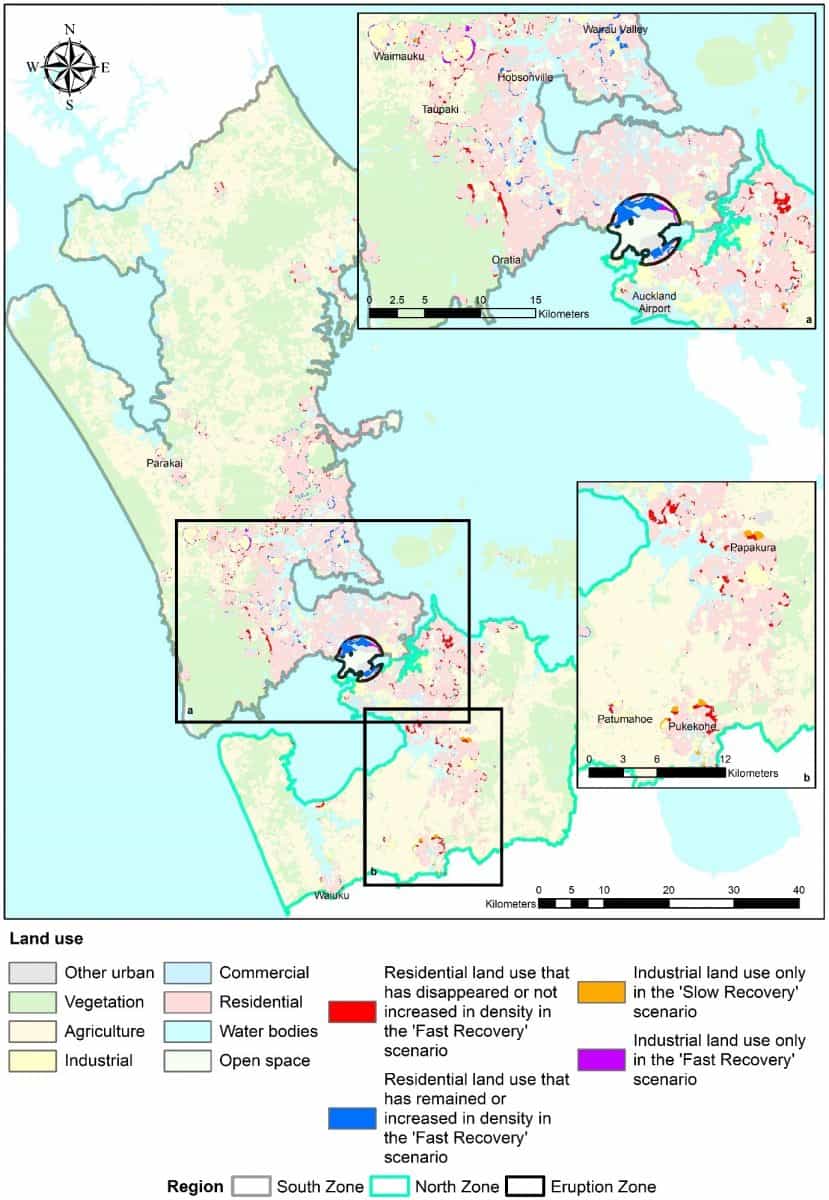
The differences between the ‘Fast Recovery’ and ‘Slow Recovery’ scenarios demonstrate how taking longer to remediate the area directly impacted by the volcanic eruption can result in more urban development on the urban-rural boundaries than might have otherwise occurred.
As far as the authors are aware, this research is the first instance of simulation of land use and economic changes over time after a natural hazard event has occurred. The developments demonstrated in this research will enable planning authorities to assess trade-offs with competing objectives in mitigation and redevelopment strategies to respond to volcanic eruptions and other natural hazard events.
The research was co-authored by Robert’s supervisors Assoc Prof Liam Wotherspoon (University of Auckland) and Dr Garry McDonald (Market Economics), with support from Prof Jan Lindsay (also University of Auckland). Funding was provided by the Resilience Challenge Economics and Urban research programmes with support from DEVORA (Determining Volcanic Risk in Auckland).
